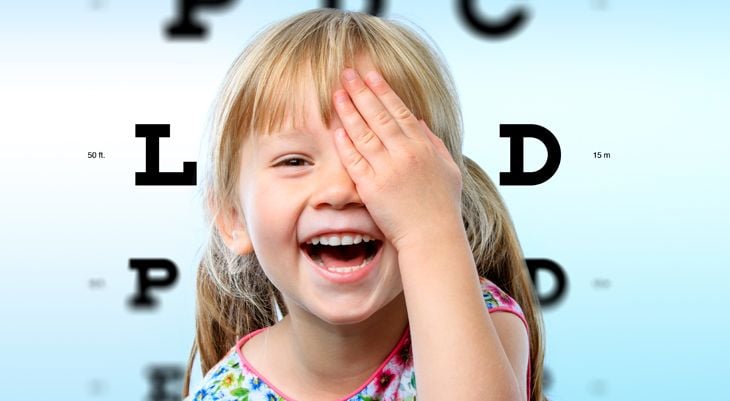Parents are often aware of the need to screen children for nearsightedness or farsightedness, but fewer know about other pediatric vision problems. Ocular motor dysfunction is a condition that often manifests in childhood, although adults may also have this disorder. Because ocular motor dysfunction
Read more

Most schools provide vision screening programs to identify children who have problems with eyesight. Although these provide a great opportunity to notice common vision problems, many vision issues go undetected in school exams. A comprehensive eye exam from an optometrist is needed to accurately diagnose a range of common pediatric vision issues.
Treatment of Pediatric Vision Issues
Although glasses may help with these pediatric vision issues, vision therapy is the most common course of treatment. Vision therapy actually retrains the eyes to work together, focus appropriately, and track objects. This may include in-office therapy with special instruments as well as personalized at-home exercises to practice vision skills. Successful vision therapy changes the eyes' functioning to facilitate clear vision.
-
Ocular Motor Dysfunction
Category: Pediatric Vision
-
Pediatric Ophthalmology
Category: Pediatric Vision
Ophthalmology addresses the physiology, anatomy and diseases of the eyes. Pediatric ophthalmology focuses on the eyes of children. Pediatric ophthalmologists examine children’s eyes to see if they need corrective lenses or other treatments to improve their vision. Training for Pediatric Ophthalmologists Pediatric
Read more -
Reading and Writing
Category: Pediatric Vision
For many adults, reading and writing come so naturally that they seem almost effortless. However, reading and writing are actually complicated skills that take significant effort to learn. For example, reading involves recognizing letters, associating letter combinations with their corresponding sounds,
Read more -
Wandering Eye
Category: Pediatric Vision
A wandering eye is a type of eye condition known as strabismus or tropia, and it may be caused by damage to the retina or muscles that control the eye, stroke or brain injury, or an uncorrected refractive error like farsightedness. With a wandering eye, one eye deviates or wanders in a different direction
Read more


